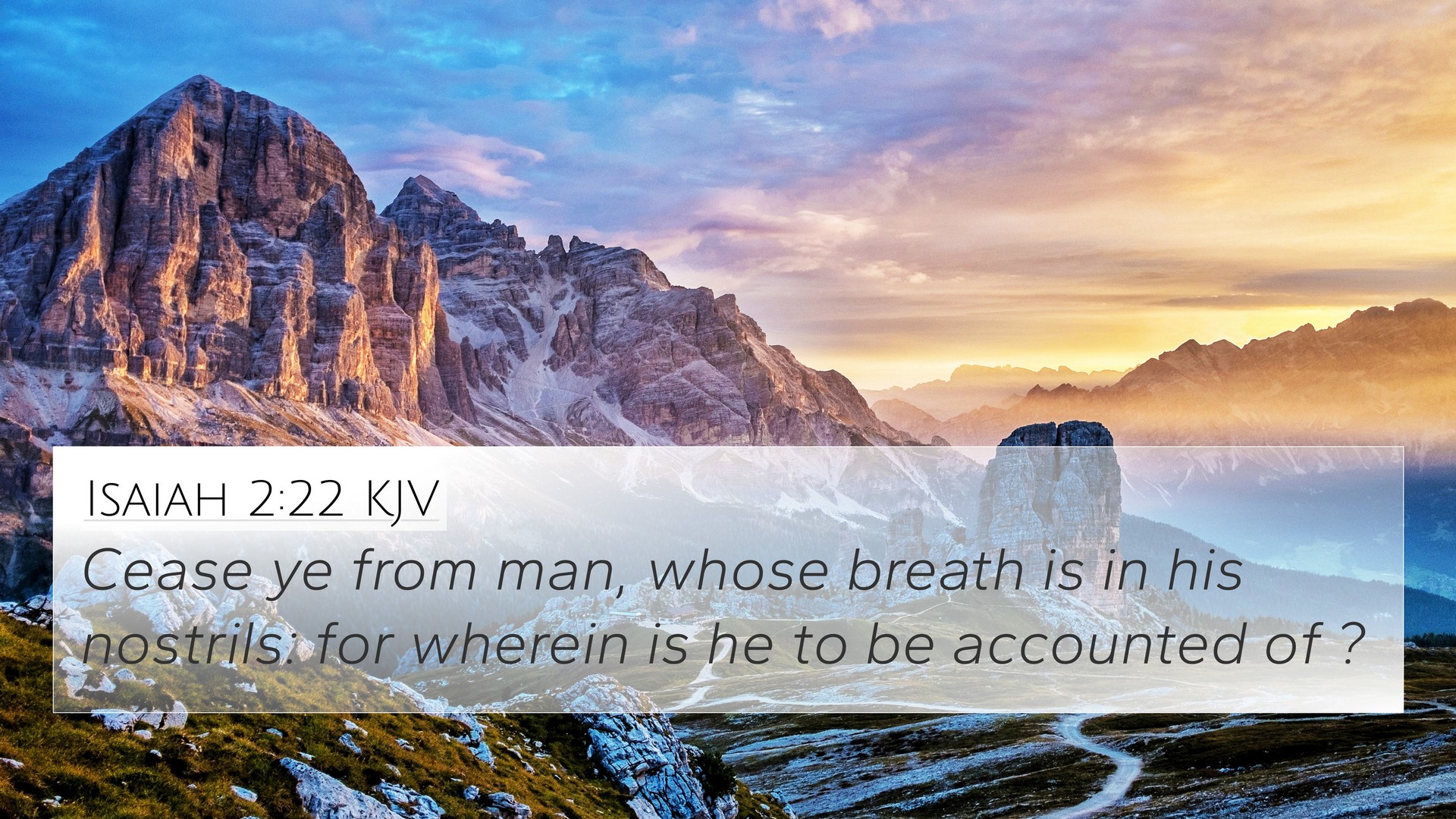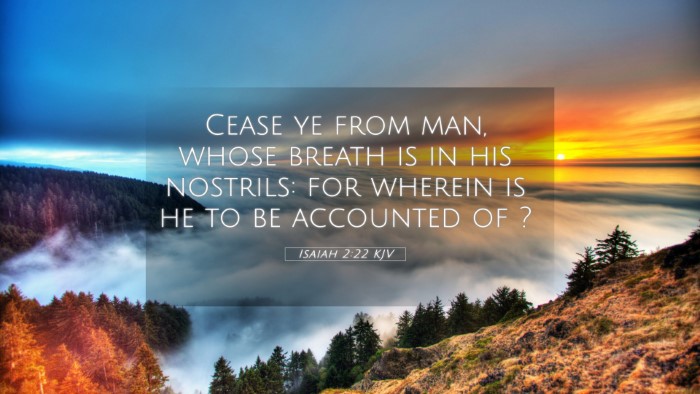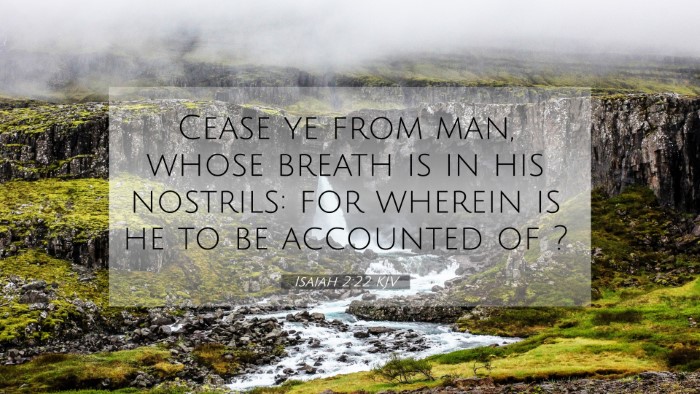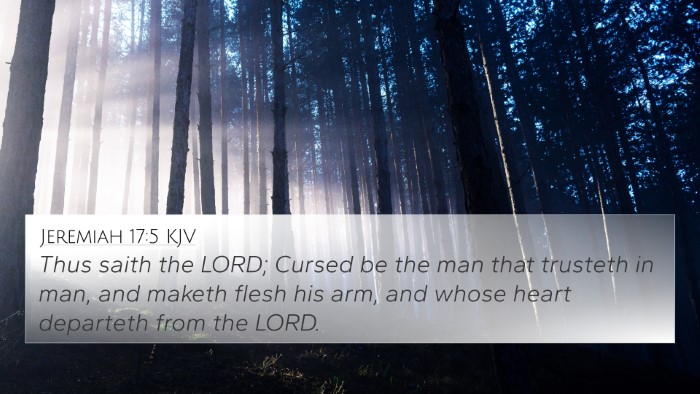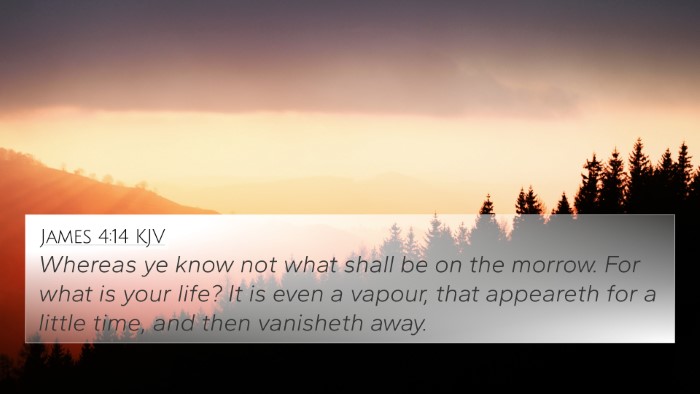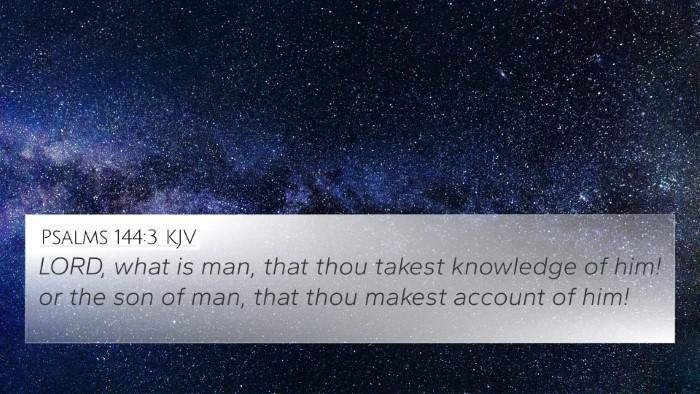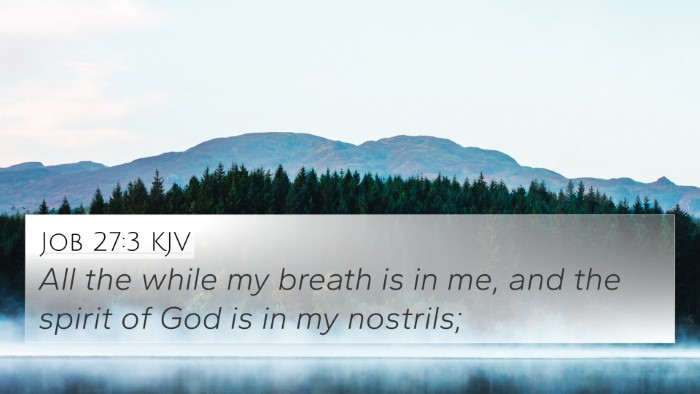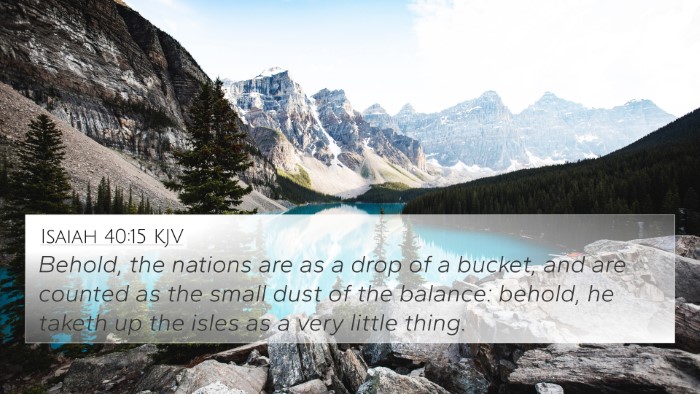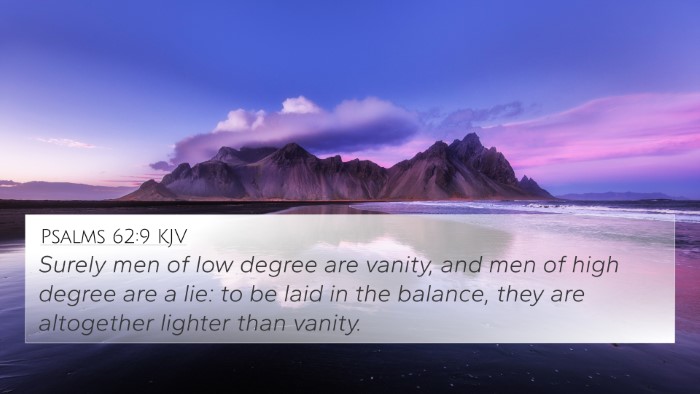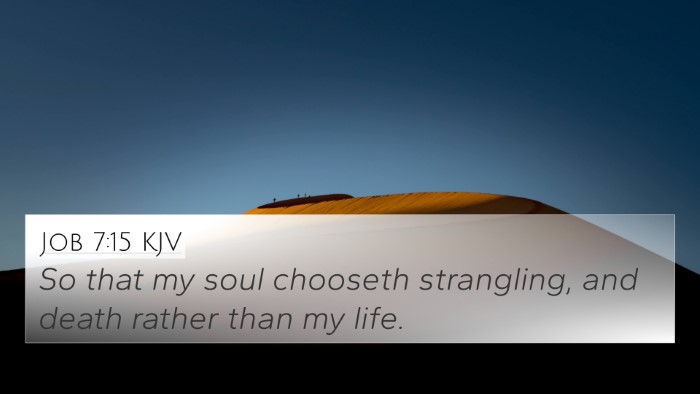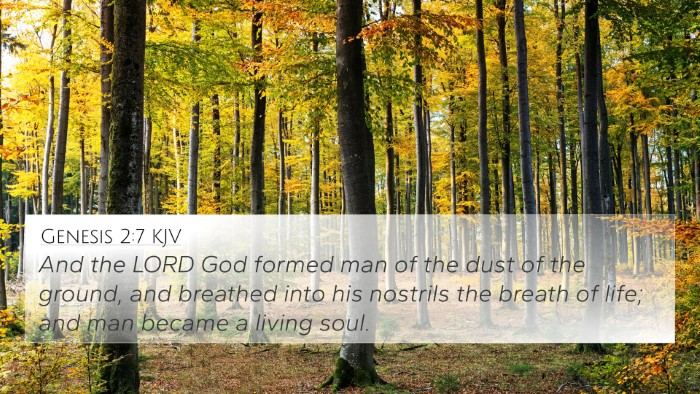Understanding Isaiah 2:22
Isaiah 2:22 states: "Cease ye from man, whose breath is in his nostrils: for wherein is he to be accounted of?" This verse serves as a profound admonition regarding human reliance and the ephemeral nature of human life. The following commentary synthesizes thoughts from respected biblical scholars including Matthew Henry, Albert Barnes, and Adam Clarke, providing a comprehensive analysis of its meaning and implications.
Key Insights from Commentaries
-
Matthew Henry's Commentary:
Henry emphasizes the vanity of relying on human strength or wisdom. He notes that, as mortals, humans merely exist for a moment, and thus, placing trust in them is ultimately futile. The prophet Isaiah calls for a recognition of God's sovereignty over human affairs, urging believers to seek solace in divine authority rather than transient human beings.
-
Albert Barnes' Notes:
Barnes expands on the idea that man is frail—his life, like a vapor, is short. He draws attention to the breath in man’s nostrils as a metaphor for his fleeting existence. Seeking support from man can lead to disappointment, as humans are limited and finite. Instead, Barnes advocates for a focus on divine strength and guidance, which are everlasting.
-
Adam Clarke's Commentary:
Clarke views this verse as a standard teaching against the futility of idolizing human leaders or figures. He suggests that rather than relying on those in power, followers of God should anchor their faith and trust in God alone, who is eternal and omnipotent. Clarke reinforces the call to discern the ultimate worth of people in contrast to the majesty of God.
Cross-References and Thematic Connections
Isaiah 2:22 connects with several other biblical passages, enhancing the interpretative depth through cross-references. Here are key verses that relate to its themes:
- Psalms 146:3-4: "Put not your trust in princes, nor in the son of man, in whom there is no help. His breath goeth forth, he returneth to his earth; in that very day his thoughts perish."
- Jeremiah 17:5: "Thus saith the Lord; Cursed be the man that trusteth in man, and maketh flesh his arm, and whose heart departeth from the Lord."
- 1 Peter 1:24: "For all flesh is as grass, and all the glory of man as the flower of grass. The grass withereth, and the flower thereof falleth away."
- Proverbs 29:25: "The fear of man bringeth a snare: but whoso putteth his trust in the Lord shall be safe."
- Isaiah 31:1: "Woe to them that go down to Egypt for help; and stay on horses, and trust in chariots, because they are many; and in horsemen, because they are very strong; but they look not unto the Holy One of Israel, neither seek the Lord!"
- Matthew 6:19-20: "Lay not up for yourselves treasures upon earth, where moth and rust doth corrupt, and where thieves break through and steal: But lay up for yourselves treasures in heaven..."
- Romans 3:23: "For all have sinned, and come short of the glory of God."
Practical Application of Isaiah 2:22
In practical terms, Isaiah 2:22 calls individuals to:
- **Assess their relationships**: Are you placing your trust in unreliable sources? Evaluate where you seek guidance and assurance.
- **Cultivate faith in God**: Shift focus from human leaders to divine wisdom, understanding that God is the ultimate source of strength.
- **Engage with Scripture**: Use tools like a Bible concordance or cross-reference guide to find related passages that reinforce trust in God over man.
Connecting Biblical Themes
The message of Isaiah 2:22 reflects a recurring biblical theme of the transitory nature of humanity versus the eternal nature of God. This theme resonates throughout Scripture, as seen in:
- The humble acknowledgment of human frailty in Ecclesiastes 3:20, "All go unto one place; all are of the dust, and all turn to dust again."
- The exaltation of God’s everlasting kingdom as articulated in Revelation 21:4, which promises a future free from sorrow and death.
Final Thoughts
Isaiah 2:22 prompts believers to reflect on their dependencies and trust. By engaging in a comparative analysis and cross-referencing with Scripture, one gains a more profound understanding of God's will versus human insufficiency. As this verse invites us to cease reliance on frail humanity, it simultaneously encourages us to embrace the unfailing, authoritative presence of God in our lives.
In conclusion, the wisdom found in Isaiah 2:22 is timeless and essential for believers seeking stability and trust in a world full of uncertainties. By employing a systematic approach to Bible study and cross-referencing biblical texts, one can uncover rich theological insights, strengthening faith and understanding in the Divine.
